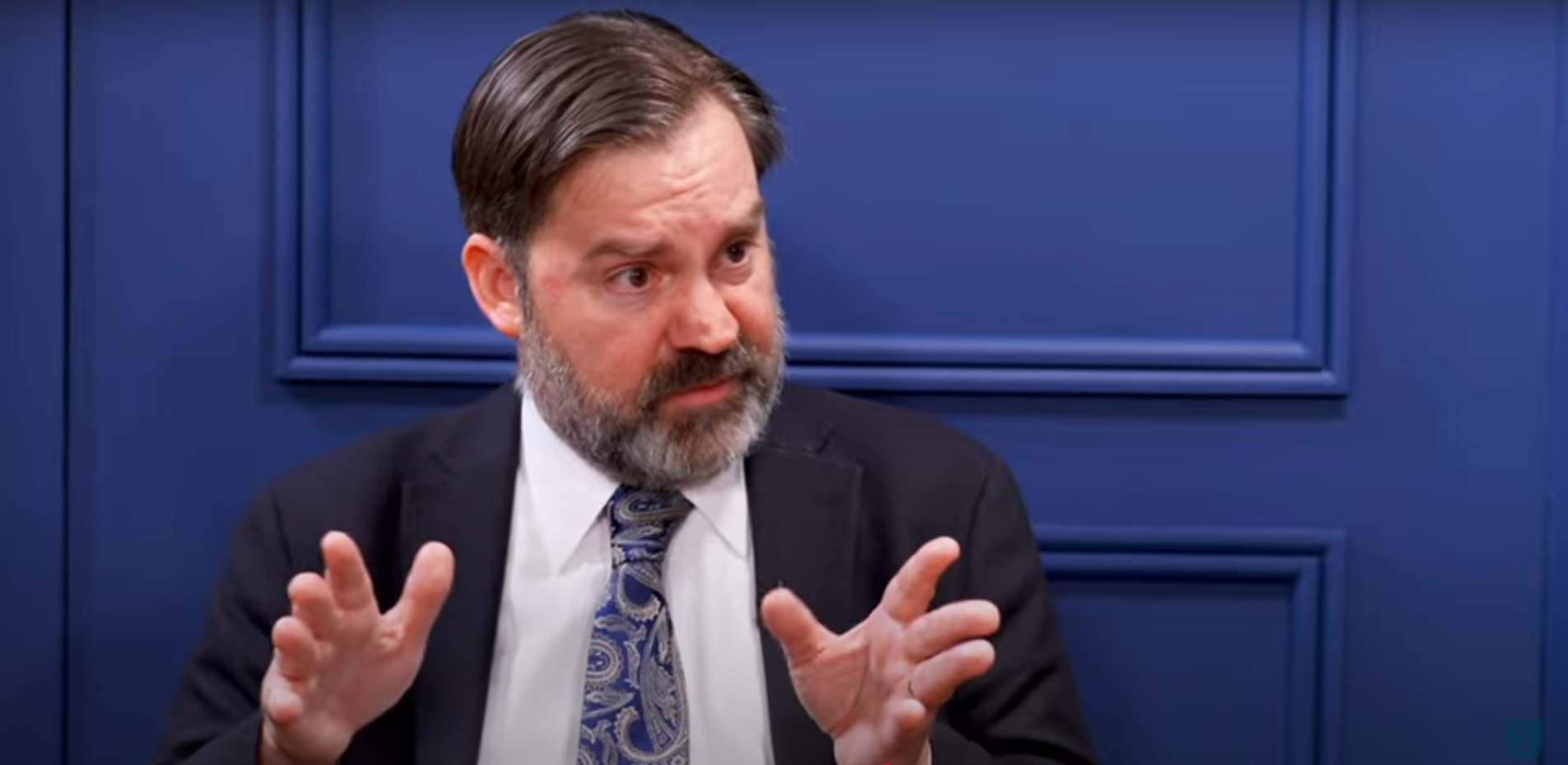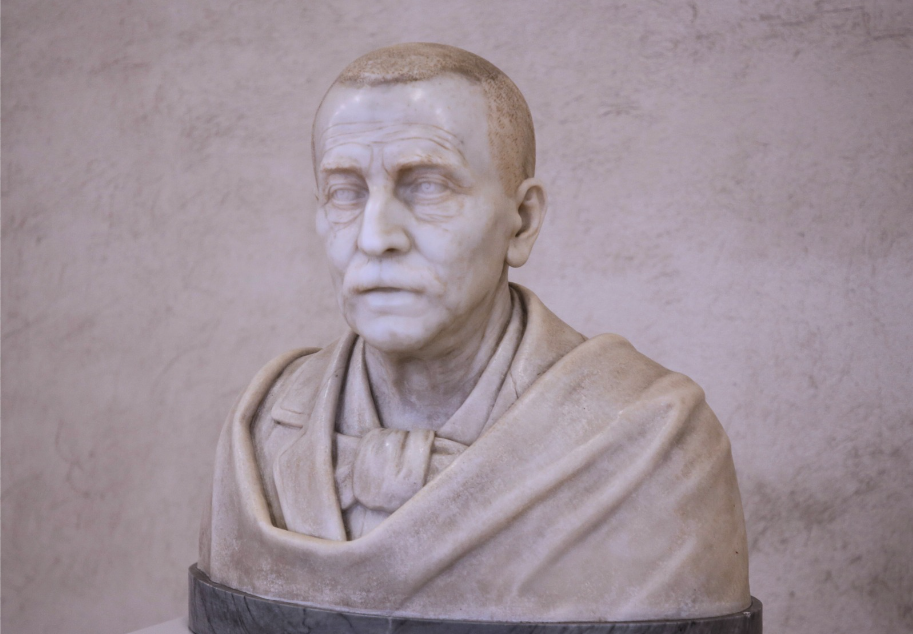In Book V of the Ethics, Aristotle distinguishes between natural and legal justice. Some measures of justice, he observes, are rooted in nature rather than in human stipulation. Natural terms of justice are universal, for they do not depend on the customs and laws of a particular polity. Historically, the rubric “natural law” is often used to designate very generally the idea that there are some universal norms of moral conduct that are not mere creatures of human custom or positive law. In this respect, natural law is not limited to propositions concerning justice or law but is equated with the position that there are objective (“natural”) grounds for moral judgments.
Natural law can also denote the idea of a natural legal order. From late antiquity to the nineteenth century, many philosophers and theologians held that God promulgates at least some moral precepts via the secondary causality of nature. Hence, in the writings of St. Paul, St. Augustine, and St. Thomas Aquinas we find the notion of an instilled law (lex indita) written on the human heart or conscience. It was from the synthesis of classical notions of natural justice and biblical belief in a divine creator and lawgiver that we inherited the phrase “natural law.” Natural law was held to be one of the ways that God governs rational creatures. Aquinas contended that the ten precepts of the Decalogue represented natural law conveyed in the mode of a divine positive law.
In the modern period, the idea of natural law is often reduced to the notion of human rights. By dint of their humanity, individuals have certain rights the state must respect. Such diverse theorists as Locke and Kant, and such diverse institutions as the Catholic Church and the United Nations, have been sources or advocates of the doctrine of natural rights. In the nineteenth and twentieth centuries, discourse and debate about natural rights is often dissevered from the idea of a natural “law,” particularly its theistic formulation.
In American legal culture, natural law is regularly identified either with the position that there are unenumerated rights that can be cognized and vindicated by the judiciary or with the method of jurisprudence by which a judge takes note of moral principles that are beyond the written text of the Constitution. According to the jargon of constitutional lawyers, this method of jurisprudence is called “noninterpretivism.” The judge must from time to time do more than interpret the written text; that is, he must search out the moral meaning and implications of a legal text or case. It must be noted, however, that not all “natural lawyers” believe that judges are authorized to appeal to natural law, and by the same token not all “noninterpretivists” believe in anything resembling the traditional notion of a natural law.
These are but a few of the meanings assigned to the phrase “natural law.” They have received quite different and sometimes contradictory formulations. Considered historically, natural-law theory has involved more than one problem or theme, but there are family resemblances among theories of natural law. For example, most natural lawyers hold some version of the thesis that norms of justice do not come into existence exclusively by dint of human art or statute. Most natural lawyers also hold that natural standards of justice constitute a necessary condition for a positive law being a genuine law. Indeed, philosophers as different as Cicero, Augustine, and Kant have held that human laws have moral as well as more narrow legal requirements. Hence, Augustine asserts, “an unjust law is no law at all.” By this, Augustine did not mean to say that justice is the sole criterion for law; rather, he meant that the absence of justice vitiates a positive law.
On the other hand, those who argue that a positive law need only meet technical or procedural criteria internal to a system of (positive) laws are generally called “positivists.” In answer to the question of what makes a command a “law,” or what makes a legal system able to identify an ordinance as a “law,” positivists such as Hans Kelsen and J. L. Austin insist that there is no necessary connection between the moral and legal properties of an enactment. To say that an ordinance or rule is a law is simply to say that it is the command of a sovereign, backed by sanctions, and habitually obeyed. The claim by positivists that the substantive moral merit or demerit of an enactment is incidental to its status as law is sometimes dubbed the “separationist thesis.” There are crude as well as relatively sophisticated versions of the thesis. The late H. L. A. Hart, who gave a very influential and nuanced account of the separation of law and morality, took care to point out that positivism does not necessarily entail the belief that morality is unimportant to law, much less that an unjust law should always be obeyed. Rather, he argued that the moral property of a command is not what endows the command with the status of law. An unjust law can be a genuine law. If it is unjust, then lawmakers ought to change it.
At least in the English-speaking world, modern conservatives have been ambivalent, skeptical, and sometimes hostile to natural law. While most conservatives have held the philosophical or religious conviction that there are timeless moral truths, many have been cautious about the political and legal implications of natural law discourse. In the Anglophone political culture, the common law was thought to contain and, as Sir Matthew Hale said, to “radiate” the natural law, making explicit appeal to natural law unnecessary. Although American colonists frequently used the rhetoric of natural rights, their justification for American independence relied chiefly on arguments concerning the history and rights of Englishmen.
Among conservatives, nothing discredited theories of natural rights more than the French Revolution, in which appeals to the “rights of man” were used to overthrow the social, political, and ecclesiastical orders. Both Jeremy Bentham’s positivism and Edmund Burke’s defense of custom and tradition represented reactions to the revolutionary effects of natural-rights theories on the Continent. The waning of natural-law jurisprudence in the English tradition was due in large part to the revulsion caused by the French experiment. Moreover, the nineteenth-century abolitionist movement in the United States frequently appealed to a “higher law” to justify the expansion of federal authority over state governments. Although Jefferson Davis himself defended the Southern cause in the language of natural rights, the Civil War and Reconstruction convinced many conservatives, particularly Southerners, that “higher law” doctrines were mere ideologies crafted for the purpose of undermining custom and positive law. Not only Southerners expressed disapproval of “higher law” doctrines. The New England Catholic convert Orestes Brownson wrote an important treatise, “The Higher Law,” which took abolitionists to task for undermining the authority of the Constitution in the name of natural law.
More recently, conservative suspicion of natural law has been aroused by the activist judiciary, which has used various kinds of natural-law reasoning to justify federal supervision and abrogation of the moral police powers of the states. The Robert Bork and Clarence Thomas nomination hearings indicated the extent to which natural law, as a tool of jurisprudence, has become a mainstay of left-liberal theorists. Both nominees were criticized for being “originalists” in jurisprudence and for failing to respect the alleged moral grounds of modern privacy rights.
Of course, there is no necessary reason why natural law requires judicial supremacy—Aquinas, for example, argued that judges ought not to be given principal authority to make the natural law effective in the political community. Yet the continuous and seemingly arbitrary use of “natural law” by the judiciary, usually for the purpose of reaching egalitarian social results and in order to vindicate individual rights against traditional morals legislation, has deeply soured conservatives on the subject.
Generally speaking, within the conservative movement today, only some libertarians enthusiastically embrace the notion of judicially cognizable natural rights. The libertarian interest in natural rights can be explained, in part, by the Supreme Court’s use of a substantive due process doctrine earlier in the century in vindicating property and contract rights. Substantive due process is the doctrine that the due process clause of Section 1 of the Fourteenth Amendment (“nor shall any State deprive a person of life, liberty or property without due process of law . . .”) mandates more than procedural justice and reaches the substantive goods being deprived or regulated by the state. Thus, according to this doctrine, judges are authorized to consider not merely whether life, liberty, or property are being fairly deprived but also whether the state has any compelling reason to limit these substantive values. For some theorists, life, liberty, and property are natural rights, and therefore there is a prima facie ground for putting the burden of justification on the state whenever these rights are touched by statutes.
While conservatives have been, at best, ambivalent about natural-law doctrines in the areas of law and politics, the opposite is true in the area of philosophy. The three most important philosophical schools of postwar conservatism in the United States—Straussian, Voegelinian, and neo-Thomist—have all insisted, in different ways, on the importance of natural law. Hence, once the issue is shifted from practical matters of politics and jurisprudence to the more speculative arena of moral and political theory, conservatives have tended to be more prepared to defend natural law—at least the ancient and medieval conceptions of natural law. Leo Strauss and his disciples have been very effective in pointing out the differences between modern conceptions of natural rights and premodern conceptions of natural law.
In sum, modern conservatives gravitate toward custom and positive law in matters of law and politics while gravitating toward nature in the more abstract discussions of the foundations of moral and political order. Since the French Revolution, conservatism has not been of one mind on this subject. Much of what counts as “conservative” opinion on natural law is shaped by reactions to the use of the concept by Left-liberals.
Further Reading
Randy E. Barnett, The Rights Retained by the People: The History and Meaning of the Ninth Amendment
Charles Groves Haines, The Revival of Natural Law Concepts
Russell Hittinger, “Natural Law in the Positive Laws: A Legislative or Adjudicative Issue?” Review of Politics
Russell Kirk, “Burke and Natural Rights,” Review of Politics
Leo Strauss, Natural Right and History
Richard Tuck, Natural Rights Theories
Eric Voegelin, The Nature of the Law and Related Writings
This entry was originally published in American Conservatism: An Encyclopedia, p. 605.















